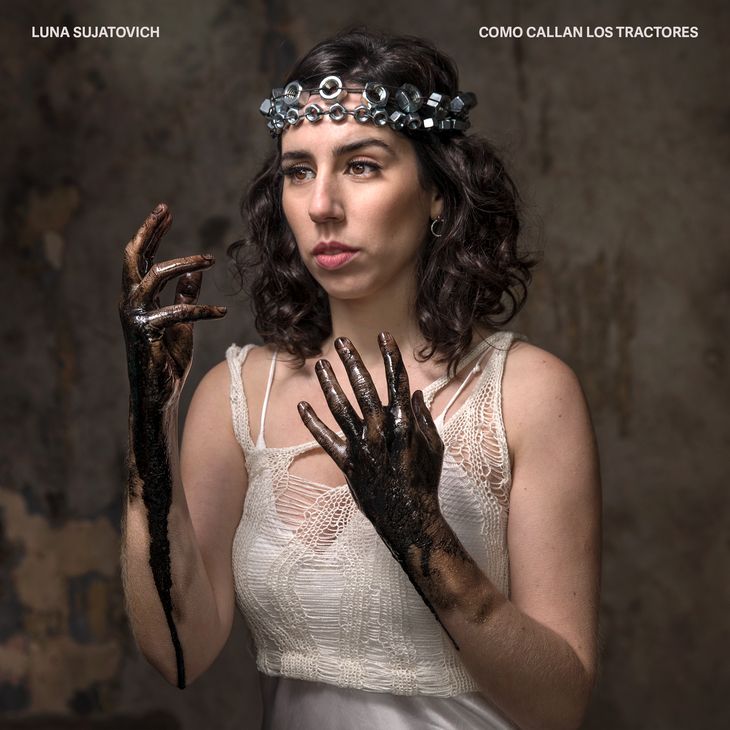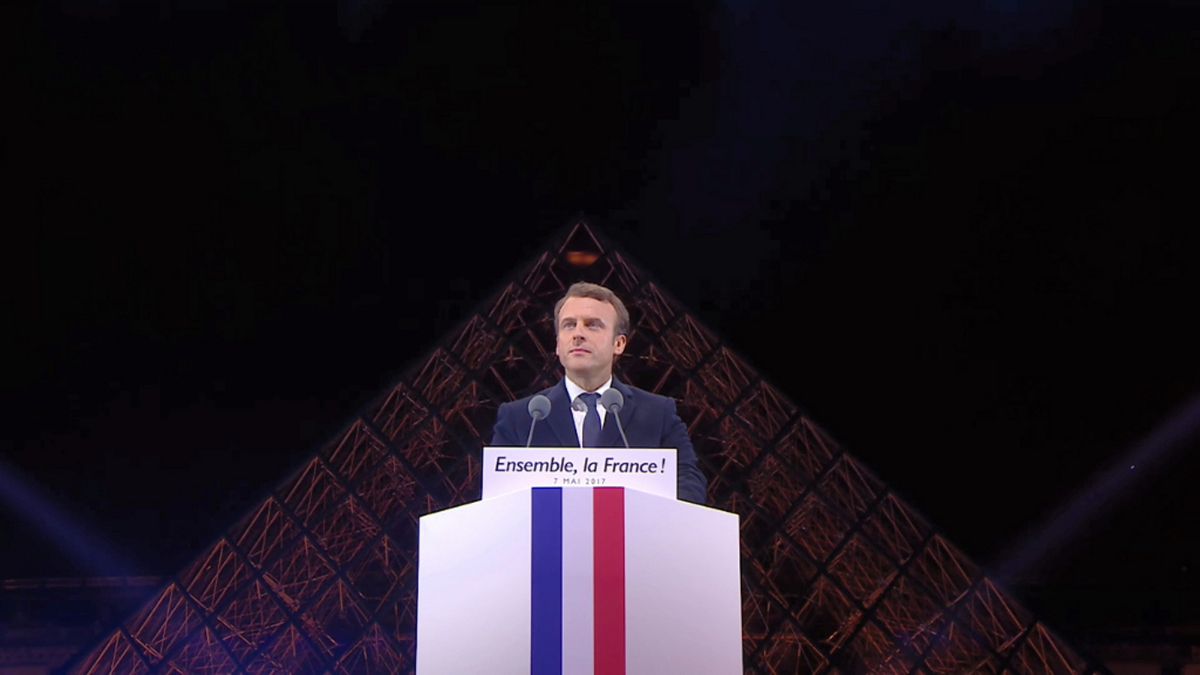Before presenting it on Wednesday, October 12 at Café Berlín, Sujatovich reflects together with Ambit about the challenges and benefits of working alone and what it means to make music outside of the trends. In addition, he reviews the main edges of his nascent work.
Journalist: “How silent are the tractors” is barely two months old, how was it received in that time?
Luna Sukhatovich: The truth is that it has been very well received. It is surprising because out there it is a type of music that is not in fashion or is not what is usually being done. Somehow, people are surprised that the traditions of instrumental and folk music on the piano continue to be preserved, still wanted to be heard and played. That is striking. There are many grateful people. “It’s good that there is music”, “it’s good that this music continues to be made”. In that sense, I am very happy. Also, a lot of people ask me for the music. I have the sheet music available for those who want to play the music.
Q.: You talk about making unorthodox music for these times. Do you feel like an outsider?
SL: Yes, re. I was always half outside, it is not new to me. I follow my path, I always try to be very faithful with what my body and heart throw at me, let’s say.
Q.: You came from presenting an album that did very well, why did you turn to the EP format this time?
SL: Because this music is music that I had been composing for a long time, long before my first album, “Desafío Guerrero”, which is an album of songs, let’s say. These are four pieces, so I preferred to frame them in this EP, which is the beginning of my facet as a composer of instrumental music. Since it was all piano music, I wanted to include it in the tractors.
Q.: What prompted you to publish it now?
SL: On the one hand, I liked that this is the moment, which is the beginning of my solo project. A bit also to continue presenting myself as a musician; to continue showing my facets as a musician and composer at the beginning of my career. Above all because it is music that I composed long before my songs. I wanted to start my path with the songs, but I had to settle this pending account and I didn’t want to wait long. In fact, a year later I already wanted to show this part of me, which is much earlier. And also because I want to play that music and for people to know it.
Q.: Do you feel that the album is exhausted?
SL: No, it’s a super new album, that people are just beginning to discover. Also, I feel that the show, by integrating both worlds, becomes another type of show; something much more eclectic and versatile, for different audiences and occasions. I like to carry both records under my arm.
LS-ComoCallanLosTractores-3000×3000.jpg
Q.: You worked with Fito Páez, now you work with Coti. Also you participate of the “La Colmena” project. In this solo adventure, what benefits and limitations do you find?
SL: Benefits, being able to make my music. That is a great enjoyment. It is where one puts the most genuine creativity, one’s own or, perhaps, the most risky. On the other hand, the path of one’s own is very difficult because everything depends on one. That is a very big job, unlike playing in other projects, where the energy is more divided or even does not depend on you. Playing with Coti Sorokin it’s like I take care of the musical stuff and, afterwards, everything else depends on other people or on him. With La Colmena, for example, the tasks are distributed much more. With my project I am learning and getting to know what it means to have your own project and all that it entails extra-musically.
Q.: In your presentation you say that you are encouraged to folklore despite being “porteña, Jewish and Tana”. What shock do you see there? Is there a gain in that?
SL: I said it because I keep feeling there something of not feeling local. There is something about not being born in a context or in a family that has that culture or those traditions. That makes me feel a little bit that I do it with a lot of respect and with what I have to give. Also being a reflection of what immigration was more than 100 years ago and the consequences we had of that. I, who have those origins, that history and that lineage, suddenly find myself very familiar with that folklore. And perhaps more than people who were born in Santiago del Estero. A little while ago I ran into a colleague who told me “my dad always sang folklore but I like funk, I do funk.” It happened to me the other way around: my old man always played rock, jazz and tango, and I’m playing folklore. Nobody had ever shown me this, I came on my own.
Q.: What attracted you to folklore?
SL: I started listening to the Duo Salteño because of a school teacher who showed me that music. Also by friends, by colleagues from the faculty who were very hardened by that stick. They went to many peñas and I had never been to one. They took me and taught me to dance. A friend of mine, Santiago Segret, who comes from a family closer to folklore and tango. He, who is a bandoneon player, showed me a lot of folklore piano music, like Carlos García, for example. In his house I had a legüero bass drum, so he played the piano and I played the legüero bass drum. In 2012 I entered a Luna Monti vocal workshop that was about Latin American and folk music. There I ended up knowing a little more. I was entering little by little and more and more.
Q.: In the four songs you explore four different subgenres of folklore, was this premeditated?
SL: Actually, I wanted to look for similar rhythms. It seemed to me that the rhythm of vidala was consistent with the first of the works. I looked for rhythms that resembled the work. That was almost at the last moment, before uploading it to the platforms. That happened a bit.
Q.: What is it like to lower your academic training to popular rhythms?
SL: Also at one point it is a reflection of musical interests. I always liked to play academic music. What happens is that folklore appeared by itself, I didn’t go looking for it. I sat at the piano and those rhythms appeared. I feel it as something that was presented to me. It’s not that I sat down at the piano and said “I want to compose a folklore”. The things that were emerging led me to look for those rhythms and those melodies. Later it emerged that I ended up composing folk music, but I didn’t look for it. It happened only because it’s the music I was listening to at the time. As I really like playing the piano, I played the piano all my life, there are tools of the instrument that I wanted to exploit. Take them to the complex.
https://graph.facebook.com/v8.0/instagram_oembed?url=https%3A%2F%2Fwww.instagram.com%2Fp%2FChcLK3Qutjy%2F&access_token=EAAGZAH4sEtVABAGdssB2Nhmo385ZBk9bVBZCn4RXZASC7YbX43lqJOZB4hYrWvv5hk1IGjLZC9ujjs0Y6RZCONIF5tmUZAdilZAYlleBIZAmEhQzi2WAEKgsqRAutXode2oorPtAmqZC1RBRRNu50pc9HHdLhYKRGCzxtuEGpiGNBOVWQZDZD
Q.: What will the public find at Café Berlin on October 12?
SL: It’s going to be a really nice night, because I’m going to play both albums. I’m going to play with the band all the songs from Desafío Guerrero and some new songs. In a moment I am going to play the piano alone; since there is a very nice grand piano, I am going to take advantage and play that piano. There are also going to be some guests and, well, little things…surprise.
Q.: In the last edition of the Gardel Awards you won two. What do they mean to you?
SL: I am very happy. I feel like it gave the project more visibility. Sometimes one does not know why the things that happen happen; if it is one or the other. The truth is, I had very nice repercussions based on that and a lot of recognition. I’m very grateful. The path is just beginning. For me the greatest prize is to be able to share music with people and for people to know it: that is the greatest prize of all.
Luna Sujatovich will perform on October 12 at Café Berlín, Villa Devoto, CABA; on October 16 in Mar del Plata and on October 26 in Quilmes.
Source: Ambito
David William is a talented author who has made a name for himself in the world of writing. He is a professional author who writes on a wide range of topics, from general interest to opinion news. David is currently working as a writer at 24 hours worlds where he brings his unique perspective and in-depth research to his articles, making them both informative and engaging.




